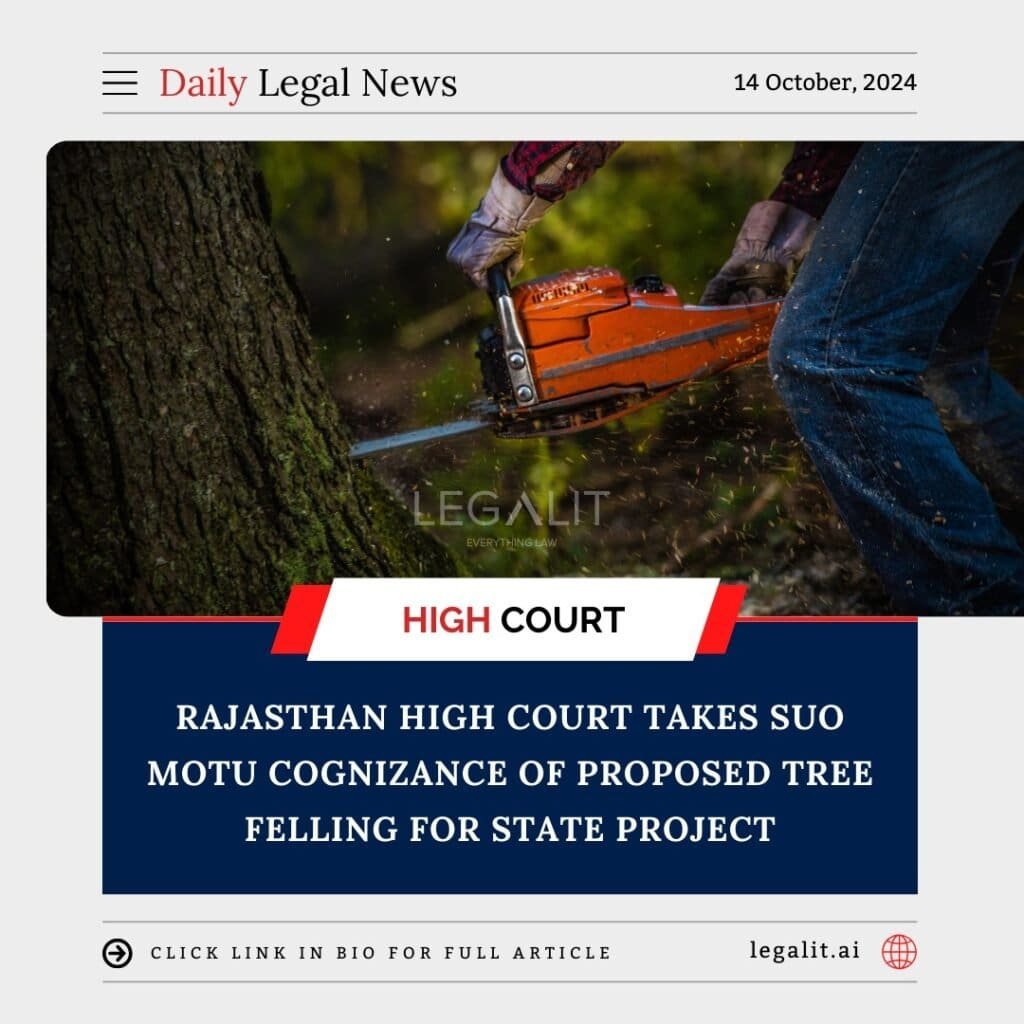
The Rajasthan High Court has initiated suo motu proceedings concerning a state project that proposes the cutting down of approximately 1.19 lakh trees. This decision underscores the court’s commitment to environmental conservation and the importance of sustainable development practices.
Background of the Case
The proposed project has raised significant concerns among environmental activists and local communities, who argue that the mass felling of trees could have detrimental effects on the local ecosystem, air quality, and climate change. The court’s intervention comes at a time when environmental issues are increasingly becoming a focal point in legal discussions, especially in the context of balancing development needs with ecological preservation.
Court’s Ruling and Reasoning
In taking cognizance of the matter, the Rajasthan High Court highlighted the legal obligation to consider the environmental impact of large-scale projects. The court emphasized the need for a comprehensive assessment of the potential ecological damage that could result from the proposed tree felling. This includes evaluating alternatives that would minimize environmental harm while still allowing for necessary infrastructural development.
Implications of the Judgment
The court’s actions serve as a critical reminder to governmental bodies and project developers to prioritize environmental sustainability in their planning processes. By actively engaging in such matters, the judiciary reinforces the principle that economic development should not come at the expense of the environment. This ruling may lead to increased scrutiny of similar projects across the state and possibly set a precedent for how future environmental assessments are conducted.
Need for Reforms in Environmental Governance
The Rajasthan High Court’s proactive stance highlights a pressing need for reforms in environmental governance. Comprehensive policies that integrate environmental assessments into the project approval process can ensure that ecological considerations are taken seriously from the outset. Such reforms could help prevent situations where development projects threaten to harm significant natural resources.
Conclusion
The Rajasthan High Court’s suo motu cognizance regarding the proposed felling of 1.19 lakh trees marks a pivotal moment in the ongoing dialogue about environmental conservation in India. By prioritizing the protection of trees and the environment, the court not only addresses immediate concerns but also encourages a broader commitment to sustainable development practices in the region. As the case progresses, it will be essential to monitor its implications for both environmental law and state development policies.